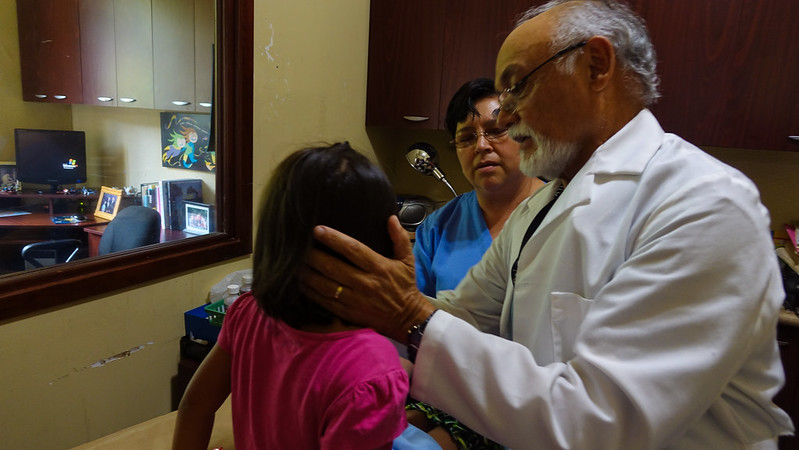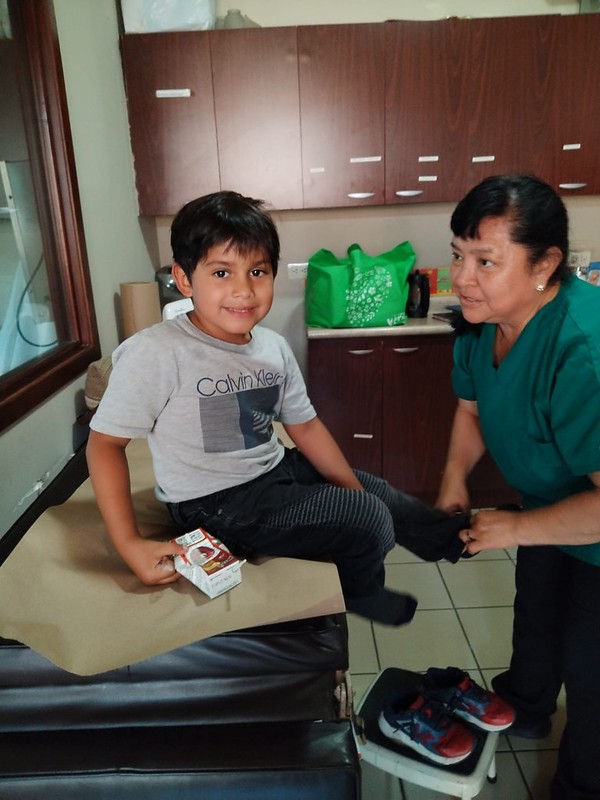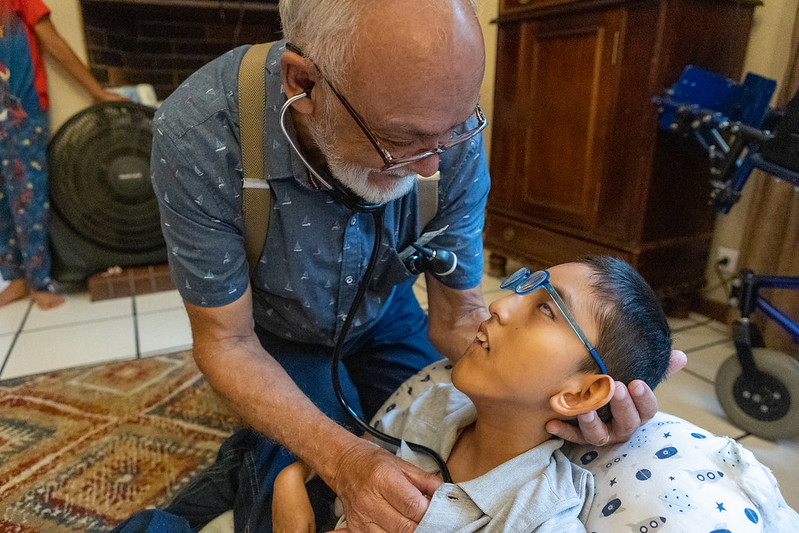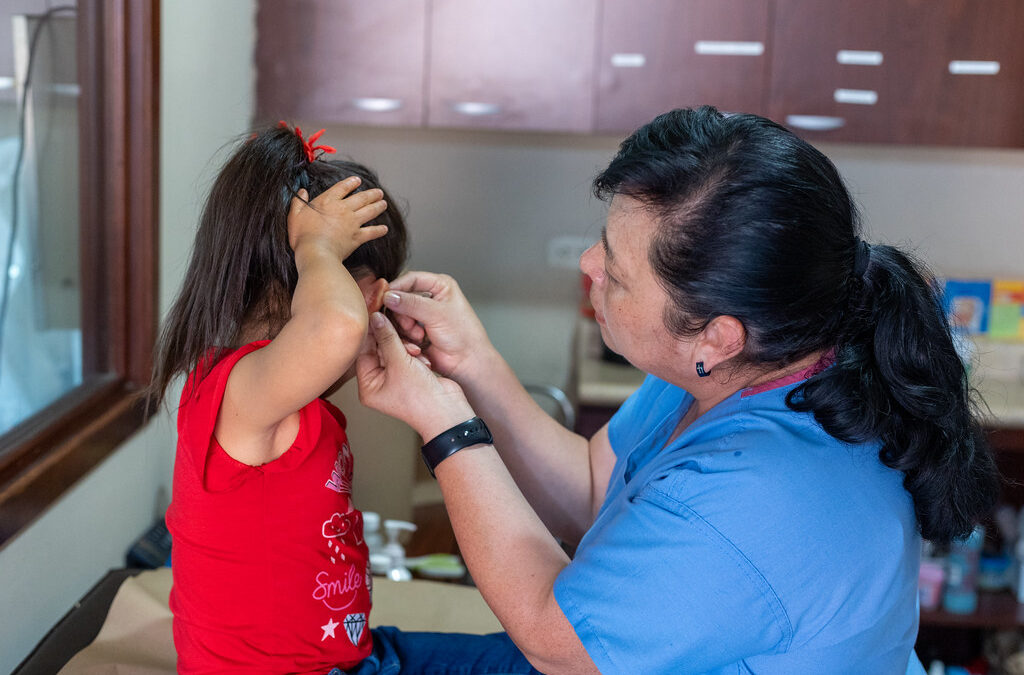Ensuring the medical and mental health of new children is one of the most urgent challenges we face as an organization. Most children who join us have immediate physical needs to be addressed, requiring robust treatment protocols.
Care Begins with Connection
Each child within our Dorie’s Promise family joins us through court order. When a need arises, court staff members reach out to homes searching for a suitable placement. After considering if we have space for the child in need (based on age, gender, behavioral or physical support needed, etc.), our team begins the process of preparing for children to join our home.
First, we schedule a date and time to properly welcome and receive new children. Giving them a warm welcome establishes our home as a place where they are wanted and safe. The Special Mother assigned to their house greets each new child, gives them their first hug, and welcomes them. Immediately thereafter, the child begins a series of steps to initiate their evaluation and treatment process.

Step 1: Evaluation and Diagnosis
Each child is taken to the nurse or doctor for an examination to identify any signs or symptoms of illness. If it is determined that there is no life-threatening condition, they are immediately tested for contagious infections.
Depending on the results from these tests, children will spend various times in isolation or quarantine with designated Special Mothers before joining our other children.
Children with a contagious infection spend a set time in quarantine to prevent spreading illnesses to other children in the home. Once no longer contagious and healed, they are introduced to our other children. Those without contagious infections only spend a short time in isolation to confirm they don’t develop any illness during their transition period.
Additionally, laboratory tests are performed to rule out any other conditions not visible to the naked eye, as well as hearing and vision tests.

Step 2: Treatment
Treatment involves two important segments: Initial Treatment and Follow-Up.
The initial therapeutic plan includes all actions aimed at treating the child’s diagnosis. These measures may include nutritional recovery diets, parasite treatment, hyperproteic procedures, vitamin supplements, cavity monitoring, etc. Each plan is tailored to the individual child’s needs.
After treatment of the primary medical needs is completed, children progress to their follow-up plan. Follow-up plans focus on constantly evaluating the progress of the children’s recovery, especially those with any conditions or discomfort. The length of these plans varies from a few months to the full duration of a child’s stay depending on the seriousness of the conditions.
Information revealed during the intake process greatly affects a child’s overall care plan.

Incorporating Education
As part of Dorie’s Promise’s comprehensive vision, the educational needs of children are also taken into account. After all, many of our children suffer from malnutrition-related sequelae that can affect their cognitive development and academic performance. Therefore, evaluations are also conducted to evaluate fine and gross motor skills.
Our medical and education staff work together to adjust developmental stage goals for each child. These goals include recommendations related to comprehensive well-being, safety, affection, and early learning stimulation. Each child has their process!
One of the most satisfying aspects of our organization is accompanying children through this process. Diagnosis and Treatment bring about significant changes in all aspects of our children’s lives!
Seeing changes reflected in their health, laughter, and their eagerness to run and play with other children is wonderful. Each child has great potential and we are committed to helping them reach that potential, not only in their health and mind but also in their heart and happiness.
